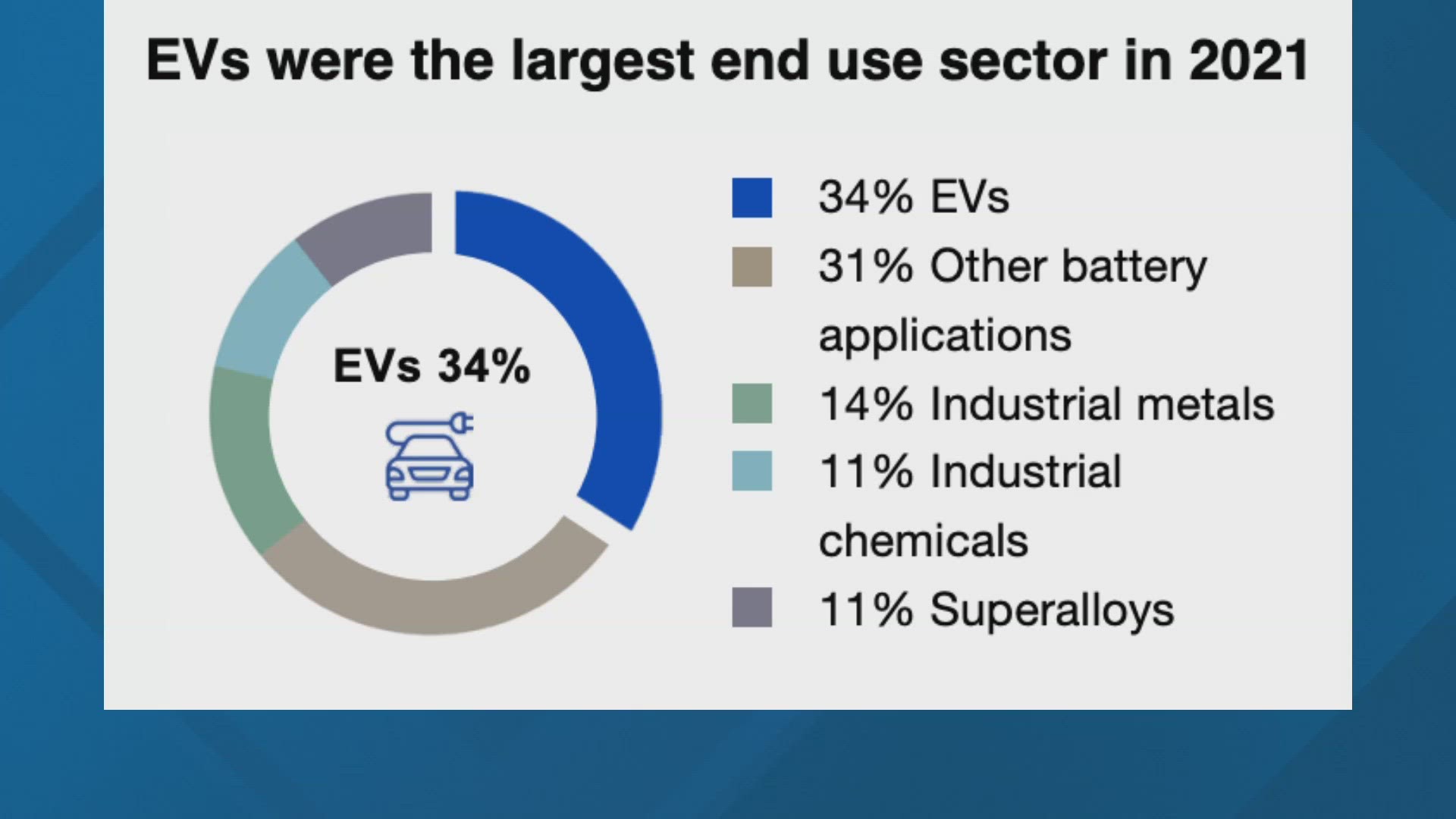PORTLAND, Maine — The auto industry sees the future of transportation as electric. In the past we’ve detailed how electric vehicles have a lower carbon footprint from cradle to grave, even if the electricity comes from coal or natural gas. However, there are serious ethical questions when it comes to the supply of some minerals used to produce their batteries.
This is especially true of cobalt, which is found in every lithium-ion battery, from smartphones and tablets to laptops in addition to being used to produce jet engines. So, if you have a smart phone, have flown on a plane or used a laptop, you’ve relied on cobalt. The issue is that, according to the United Nations, more than 70 percent of the world’s supply of cobalt comes from the Democratic Republic of Congo, where there are many documented cases of child labor and hazardous working conditions.
Although this issue has been top of mind for organizations like Amnesty International for many years, it’s becoming more well-known to the public with the rise of electric vehicles. According to the Cobalt Institute, in 2021 Electric Vehicles consumed 59,000 tons of cobalt, 34 percent of the global total, compared to 26,000 tons for cellphones and 16,000 tons for laptops.
Although most of the cobalt is extracted by industrial mines, as much as 15 percent of the DRC cobalt supply comes from so called “artisanal miners,” who are often locals with very little equipment or safety oversight. According to an on-the-ground report by The Guardian, there are more than 250,000 artisanal miners, at least 35,00 of whom are children, some as young as 6 years old.
Several car manufacturers have worked to ensure their cobalt is responsibly sourced, but this has proven extremely difficult because of a hard-to-trace supply chain. Artisanal miners sell their cobalt in buying houses, and it is quickly assimilated with the more regulated ore. That material is then sent over to China where it is further refined. During this process the regulated and unregulated cobalt product is mixed, and the trail is lost.
In addition to the human rights issues surrounding cobalt mining, there is environmental damage including water and air pollution and deforestation. Close to the mines cobalt has even been found at dangerous levels in the fish in nearby lakes. And the dust and grit from extraction that can fill the air making it difficult to breathe.
Currently, several EV manufacturers like Tesla are making batteries without cobalt. These batteries are called iron-phosphate, and they don’t use nickel or cobalt and are often cheaper to produce. However, they are less energy dense, which means they are not as efficient for long-range electric vehicles. So, while there is potential, it doesn’t seem to be a complete solution.
Right now, there is no silver bullet to stopping the environmental and societal cost of mining cobalt. It will likely take a combination of supply chain regulation. new battery technologies and improved recycling of existing batteries.

